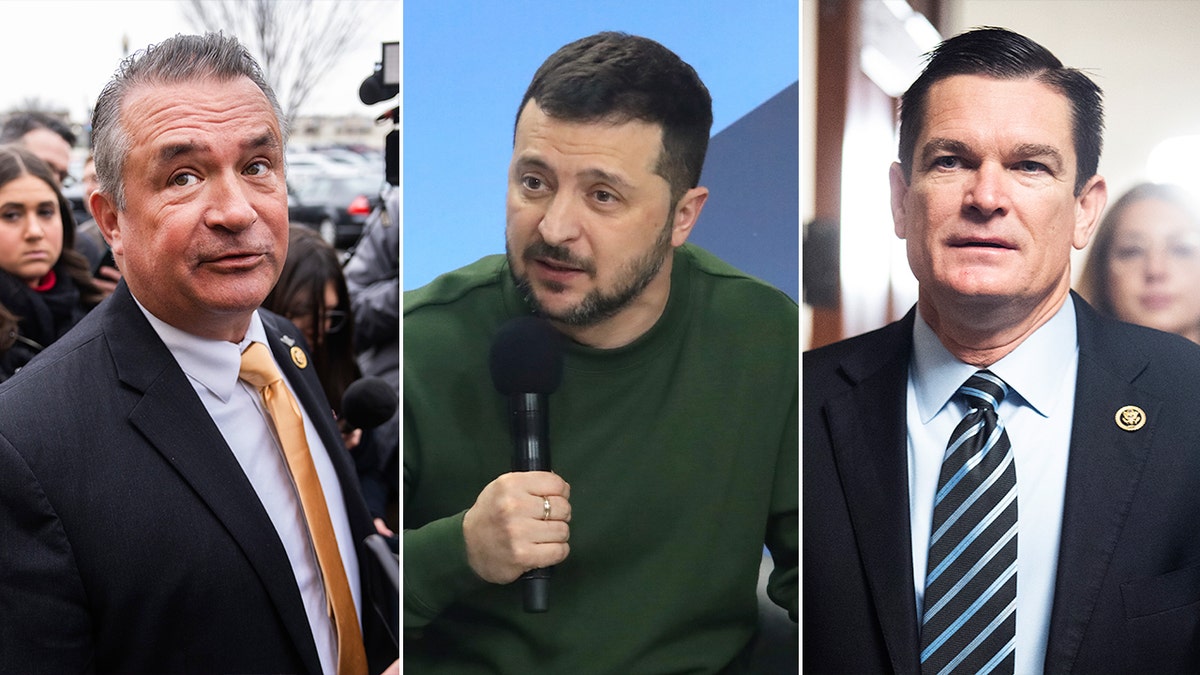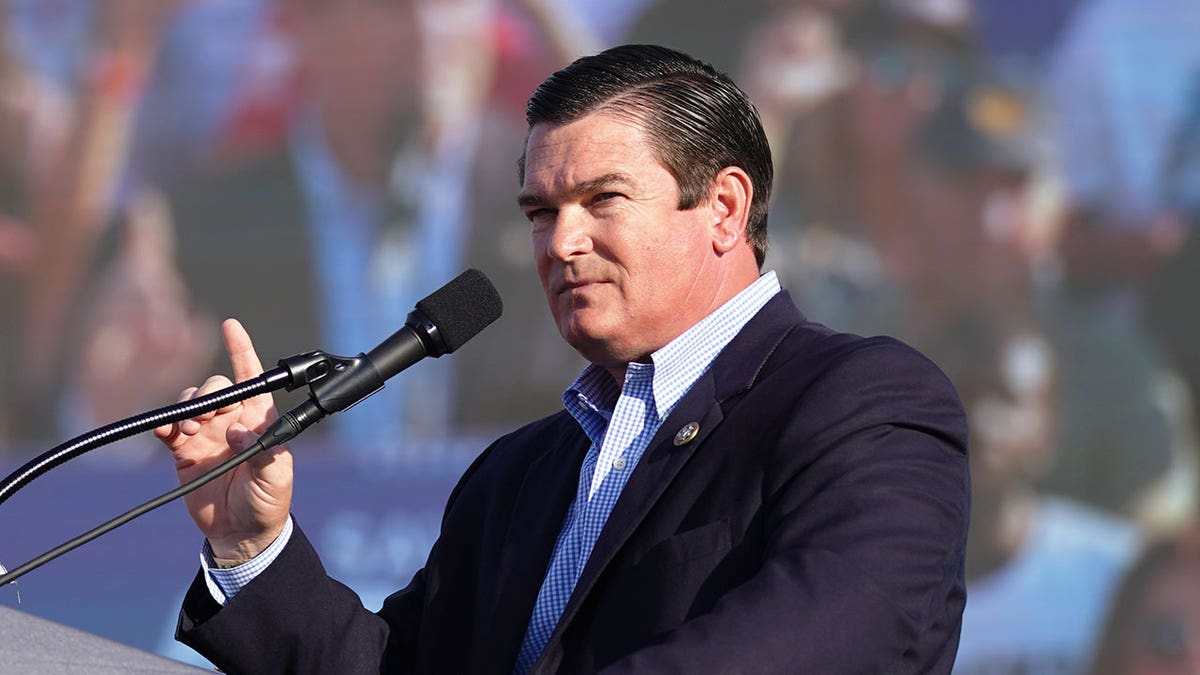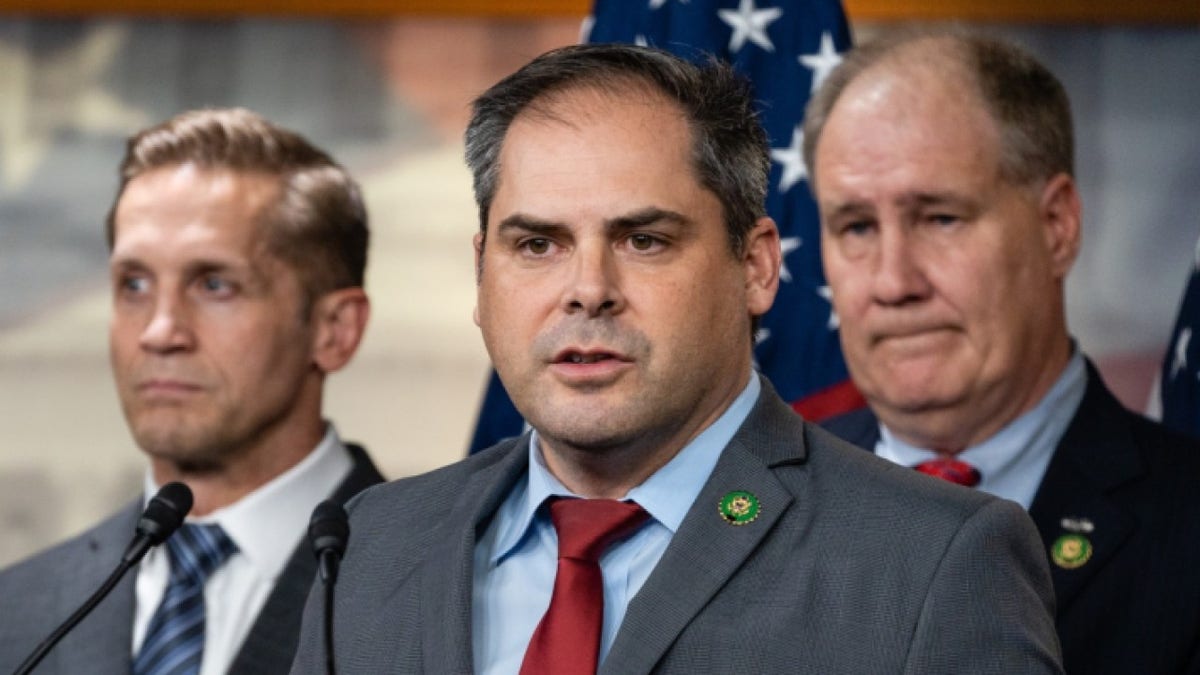House Republicans wrestle with Ukraine aid’s future as Senate spending deal crumbles
House Republicans who support sending aid to Ukraine are scrambling to find a way to move it through Congress as a compromise on funding Kyiv while overhauling U.S. border policy appears increasingly likely to fail.
“There’s a bunch of us advocating for military aid because that’s what they really need,” Rep. Don Bacon, R-Neb., told Fox News Digital Tuesday. “All the rebuilding stuff, let’s talk about that later. They need weapons.”
Several GOP lawmakers have suggested that a standalone Ukraine aid bill that’s solely focused on weapons and defensive funding, less than the roughly $60 billion that President Biden has requested, could get enough bipartisan support to pass the House and Senate.
UKRAINE’S DIMINISHED FORCES DRIVE RECRUITMENT PUSH, PROPOSAL TO LOWER DRAFT AGE
Biden’s Ukraine request is part of a $118 billion supplemental security funding deal cobbled together by Senate and White House negotiators. The bill includes border policy reforms and aid for Israel and Taiwan.
But Ukraine funding, an issue that’s faced a growing number of GOP skeptics in Congress, appears to be in danger of falling by the wayside because that bipartisan Senate deal sits “on life support,” as Speaker Mike Johnson, R-La., put it during a Tuesday morning press conference.
The deal has been hemorrhaging GOP support since the text was released on Sunday evening, with even its lead negotiators expressing doubt it would pass.
Meanwhile, House Republicans have tried twice now to pass standalone aid for Israel, citing its war against Hamas.

ZELENSKYY WILL FACE ‘RECKONING’ WHEN WAR WITH RUSSIA ENDS, EXPERT SAYS
“If the Ukrainians don’t have the weapons that they need to defend themselves, then it’s going to be a conquering from Russia,” Rep. Austin Scott, R-Ga., told Fox News Digital. “It’s not OK. It’s not in the best interest of the United States.
“The majority of us in the House and the majority in the Senate, I believe, want the Ukrainians to have the weapons that they need to defend themselves. And I think you will continue to see those of us who want them to have the weapons to defend themselves continue to push for them.”

Rep. Mike Garcia, R-Calif., criticized the supplemental aid bill as overbroad and called for a narrower, targeted Ukraine bill that also addresses the concerns Republicans have regarding corruption and accountability over aid dollars.
“I’ve been very clear with the White House what questions they need to answer in order to get support for Ukraine funding,” Garcia said.
“Anything that starts with a ’B’ in terms of funding, if it’s not an appropriations package, outside of the normal cycle, should be an à la carte, independent conversation,” he added, referring to billions of dollars in funding.
ZELENSKYY SAYS UKRAINE CAN BEAT PUTIN’S TROOPS BUT NEEDS WESTERN HIGH-TECH HELP
Foreign Affairs Committee Chairman Michael McCaul, R-Texas, argued that failing to help Ukraine could have repercussions elsewhere.
“Following the disastrous withdrawal from Afghanistan, a U.S. decision to abandon Ukraine will make America less safe, convey weakness to our enemies and make U.S. partners doubt our commitment,” McCaul said. “Moreover, supplemental funding is critical to reviving the U.S. defense industrial base so we are better prepared to deter our greatest adversaries like China, Russia and Iran.”

Rep. Andy Harris, R-Md., a member of the ultra-conservative House Freedom Caucus who has been sympathetic to Ukraine, suggested he could get behind a standalone, narrow aid bill.
“Congress meets all year. There’s no need to have a $60 billion package,” Harris said. “The European Union package is a slightly smaller package spread out over five years. So, I don’t know why we would not just bite off a smaller piece of military-only aid and move forward with that.”
The speaker said Ukraine was still a priority for the House when pressed about it earlier Tuesday but did not give any details on what kind of aid package he’d entertain.
“That’s not been abandoned, but there’s a lot more work that needs to be done with regard to what the answers are that the White House needs to provide us,” Johnson said. “End game strategy, accountability for the funding — all of these very specific details that the House is required to consider when we make such heavy decisions.”
The U.S. has directed roughly $75 billion toward Ukraine since Russia launched its invasion in 2022.
Read the full article Here


